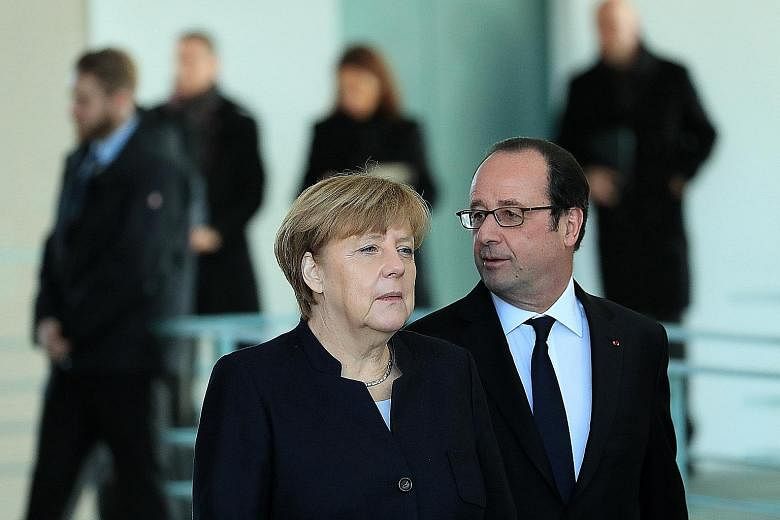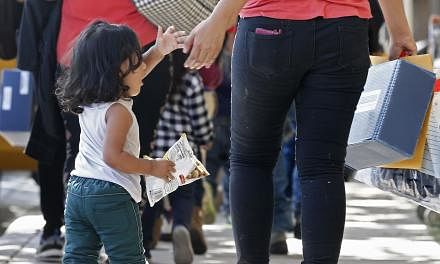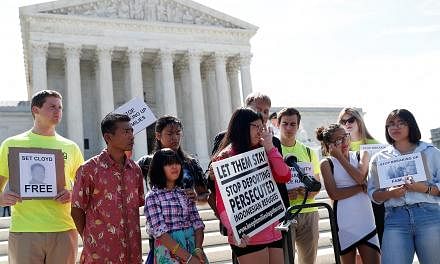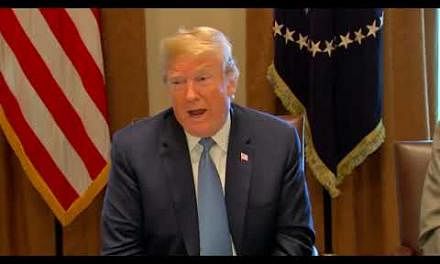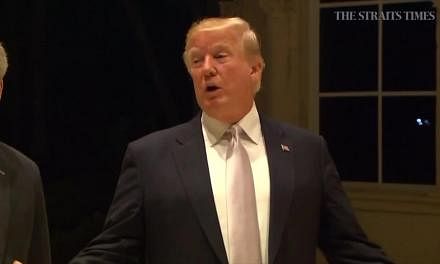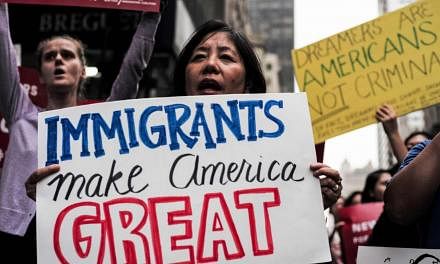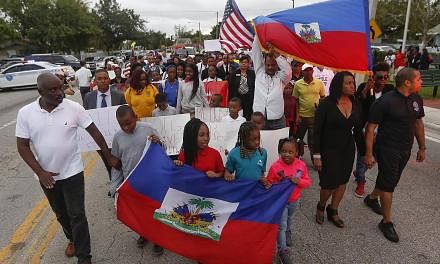PARIS • The European Union's traditional power couple, France and Germany, have expressed mounting alarm at key decisions by US President Donald Trump in his first week in office, saying they raised many issues of concern.
French President Francois Hollande vowed a "firm" response to a growing list of pronouncements by the tycoon, including his encouragement for Brexit and suspension of all refugee arrivals.
"We must conduct firm dialogue with the new American administration, which has shown it has its own approach to the problems we all face," the French leader said on Saturday after a meeting of southern EU countries in Lisbon, flanked by fellow leaders.
German Chancellor Angela Merkel yesterday slammed the restrictions on immigration imposed by Mr Trump, saying it was "not justified" to target people based on their background or religion.
"The Chancellor regrets the entry ban imposed by the US government against refugees and nationals from certain countries," spokesman Steffen Seibert said in a statement.
"She is convinced that even in the necessarily resolute battle against terrorism it is not justified to place people from a certain origin or belief under general suspicion."
The German government "will now examine the consequences" of the ban for German citizens with dual nationality affected by the decision, he added.
Dr Merkel's condemnation comes a day after she spoke by phone to the new US President, when they discussed a range of issues from relations with Russia to the situation in the Middle East and Nato.
In London, Downing Street said yesterday that British Prime Minister Theresa May does "not agree" with the immigration curbs and will intervene if they affect British nationals.
"Immigration policy in the US is a matter for the government of the United States, just the same as immigration policy for this country should be set by our government," a spokesman said. "But we do not agree with this kind of approach and it is not one we will be taking. If there is any impact on UK nationals then clearly we will make representations to the US government about that."
Mrs May had sparked controversy in Britain on Saturday after refusing to condemn the order by Mr Trump to suspend refugee arrivals, saying Washington was responsible for its own immigration policy.
Meanwhile, Canadian Prime Minister Justin Trudeau on Saturday welcomed Canadian immigrants in a sunny Twitter message written in stark contrast to Mr Trump's order.
"To those fleeing persecution, terror & war, Canadians will welcome you, regardless of your faith. Diversity is our strength #WelcomeTo Canada," he posted.
According to the latest Canadian census, from 2011, one out of five people in the country is foreign-born.
AGENCE FRANCE-PRESSE
